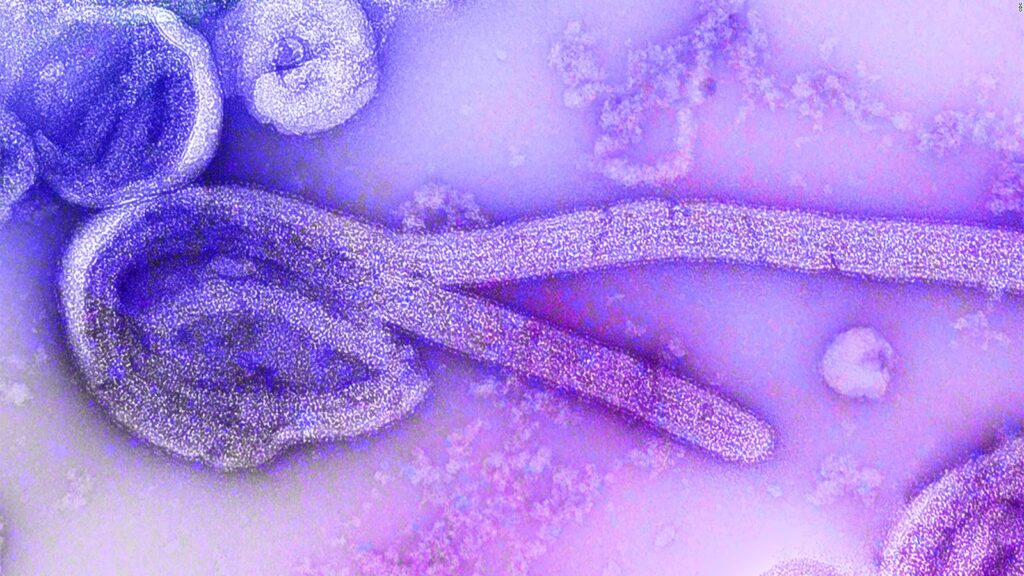by Darpan Sachdeva

In recent years, the world has watched with growing concern as Ebola virus disease (EVD) has repeatedly surfaced in West Africa, causing devastating outbreaks. With its high fatality rate and rapid spread, Ebola has become one of the most feared infectious diseases globally. However, behind the alarming headlines, the scientific community has been diligently working to understand, contain, and ultimately find a cure for this deadly virus.
Understanding Ebola
Ebola virus disease, caused by the Ebola virus, was first identified in 1976 near the Ebola River in what is now the Democratic Republic of Congo. The virus is zoonotic, meaning it initially spreads from animals to humans. Fruit bats are considered the natural hosts. Once in the human population, Ebola spreads through direct contact with the blood, secretions, organs, or other bodily fluids of infected people, and with surfaces and materials contaminated with these fluids.
Symptoms and Diagnosis
EVD presents with a sudden onset of fever, intense weakness, muscle pain, headache, and sore throat. This is followed by vomiting, diarrhea, rash, impaired kidney and liver function, and in some cases, both internal and external bleeding. Diagnosing Ebola requires specialized laboratory tests, including antigen-capture enzyme-linked immunosorbent assay (ELISA), serum neutralization tests, and RT-PCR, among others.
Recent Outbreaks and Challenges
West Africa has been particularly hard-hit by Ebola, with the 2014-2016 outbreak being the largest and most complex since the virus was discovered. It affected Guinea, Sierra Leone, and Liberia, resulting in over 28,000 cases and more than 11,000 deaths. More recently, outbreaks in the Democratic Republic of the Congo have prompted international concern and response efforts. These outbreaks have highlighted several challenges: weak healthcare systems, delayed detection, and the socio-political instability that hampers effective response.
Advances in Treatment
Despite these challenges, significant progress has been made in the fight against Ebola. One of the most promising developments is the advent of effective vaccines. The rVSV-ZEBOV vaccine, developed by Merck, has shown substantial efficacy in protecting against the Ebola virus. This vaccine was widely used during recent outbreaks, significantly reducing the spread of the disease.
In addition to vaccines, therapeutic treatments are being developed and tested. Inmazeb (REGN-EB3), a cocktail of monoclonal antibodies, and mAb114, a single monoclonal antibody, have both received approval from the U.S. Food and Drug Administration (FDA) for the treatment of Ebola. These treatments work by targeting and neutralizing the virus, helping infected patients recover more quickly.
The Role of Rapid Diagnostics
Rapid and accurate diagnostics are crucial in controlling Ebola outbreaks. Innovations in diagnostic technologies have enabled quicker detection and isolation of Ebola cases, curbing the spread of the virus. For instance, the GeneXpert Ebola assay can detect the virus within a few hours, which is a significant improvement over traditional methods that could take days.
Community Engagement and Public Health Strategies
Effective community engagement and public health strategies are vital in controlling Ebola outbreaks. Educating communities about the importance of hygiene, safe burial practices, and early medical care can significantly reduce transmission rates. During the 2014-2016 outbreak, mistrust and misinformation were major barriers. However, increased efforts in community engagement and the use of local languages and cultural practices have improved public cooperation in recent outbreaks.
International Collaboration
The fight against Ebola is a global effort. Organizations like the World Health Organization (WHO), the Centers for Disease Control and Prevention (CDC), and various non-governmental organizations (NGOs) have played critical roles in outbreak response. These organizations provide support in terms of funding, medical supplies, and expertise, ensuring that affected countries have the resources needed to combat the virus.
The Road Ahead
While significant strides have been made, the fight against Ebola is far from over. Continuous research and development are essential to improve vaccines and treatments further. Strengthening healthcare infrastructure in vulnerable regions is also crucial to ensure early detection and response to future outbreaks.
Moreover, the lessons learned from Ebola outbreaks can inform global responses to other infectious diseases. The COVID-19 pandemic has underscored the importance of preparedness, rapid response, and international cooperation in managing infectious disease threats.
As Ebola continues to pose a threat in West Africa, the scientific community remains committed to finding a cure and controlling the spread of the virus. Through vaccines, treatments, rapid diagnostics, community engagement, and international collaboration, significant progress has been made. However, ongoing efforts are necessary to ensure that we are better prepared for future outbreaks and to ultimately eradicate Ebola as a global health threat.
 Darpan Sachdeva is the CEO and Founder of Nobelthoughts.com. Driven by a profound dedication to Entrepreneurship, Self-development, and Success over an extended period, Darpan initiated his website with the aim of enlightening and motivating individuals globally who share similar aspirations. His mission is to encourage like-minded individuals to consistently pursue success, irrespective of their circumstances, perpetually moving forward, maintaining resilience, and extracting valuable lessons from every challenge.
Darpan Sachdeva is the CEO and Founder of Nobelthoughts.com. Driven by a profound dedication to Entrepreneurship, Self-development, and Success over an extended period, Darpan initiated his website with the aim of enlightening and motivating individuals globally who share similar aspirations. His mission is to encourage like-minded individuals to consistently pursue success, irrespective of their circumstances, perpetually moving forward, maintaining resilience, and extracting valuable lessons from every challenge.



My relatives every time say that I am wasting my time here at net, but I know I
am getting knowledge daily by reading such pleasant
articles or reviews.